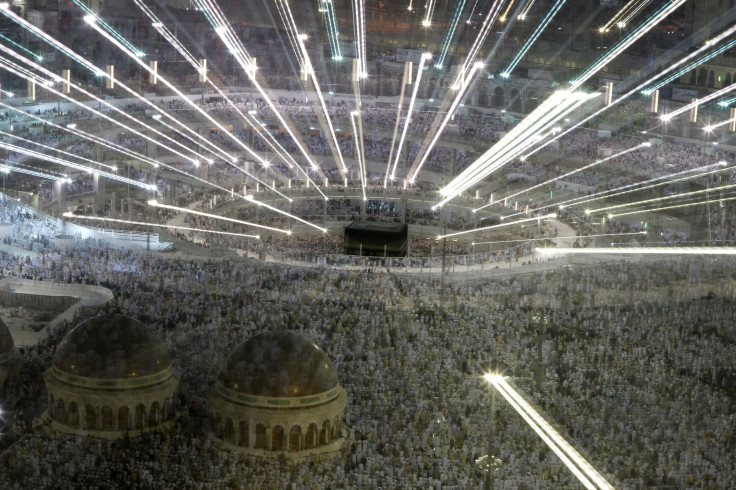Hajj 2014: Technology And A Changing World Punctuate This Year's Muslim Pilgrimage

Millions of Muslims are in or on their way to Mecca, Saudi Arabia, for the annual hajj, the most important pilgrimage in the Muslim faith and one of the largest gatherings of people in the world. The 1,400-year-old tradition is being affected this year by global trends such as the Ebola outbreak, terrorist threats and the growing practice of taking selfies with cell phone cameras.
The hajj started on Wednesday and lasts until the sighting of a new moon sometime around Oct. 7. More than 2 million people are expected to make the pilgrimage, which is required of all able-bodied and financially able Muslims to perform at least once in their lives.
A recent lifting of a ban on cell phones around holy sites in Mecca has led to some of those pilgrims to take “hajj selfies,” much to the chagrin of Muslim leaders. Clerics were quick to denounce hajj selfies as “touristy behavior” and “defy the wish of our Prophet” because they betray Muslim notions of modesty. Now an anti-selfie campaign has taken root on social media.
#NotInMyName #Mecca #Hajj #١٤٣٥ #الحج #مكة_المكرمة #HajiBackpacker #hajjselfie #Hajj2014 @saifuddinabd pic.twitter.com/LHSnQEGGOt
— Nur Iman (@iimandesu) October 1, 2014RT #hajjselfie hitting the headlines pass a message to Hajis to stop taking selfles and stay in worship. #Hajj2014 pic.twitter.com/0ovUPdYq1d
— Al Mubarak Radio ™ (@MrAlMubarak) October 1, 2014Terrorism and the Ebola virus are top concerns for Saudi authorities this year. Pilgrims, especially those from Africa, are heavily screened for signs of Ebola and planes are being sanitized before takeoff. Authorities set up 24 isolation units and brought 22,000 doctors are on hand to deal with any health issues any pilgrims might have.
Saudi Arabia has mobilized 60,000 security troops to maintain order at the hajj and safeguard against any potential attacks. Saudi authorities are also using state-of-the-art security cameras with facial recognition capabilities. Fahad Nazer, an terrorism analyst with JTG Inc., said he wouldn't be surprised if the Islamic State group attempted an attack during the holy period.
"Judging from its published statements and videos and its penchant for revolting acts of violence, I would not be surprised at all if ISIS tried to disrupt the hajj in some fashion," he told the Huffington Post.
Muslim scholars and critics have commented on the state of Mecca itself in recent days, criticizing Saudi leaders for bulldozing historic parts of the city in favor of modern and commercial infrastructure. Turkey’s Dr. Mehmet Gormez, head of the Directorate of Religious Affairs, told reporters “history is being destroyed on the Holy Land each day. I wish we were not experiencing a problem of de-historification in these lands.”
There is even an accusation that Budweiser is selling non-alcoholic beer in the Haram central shrine. Drinking alcohol is strictly forbidden.
#Budweiser (non alcoholic) sold in the Haram. Something wrong about Hajis giving business to this company. #Hajj2014 pic.twitter.com/EggQ6y7189
— Hussain Kamani (@HussainKamani) September 29, 2014Pilgrims are expected from all around the world, but not all make it to Mecca. The Saudi government has turned back around 100,000 people for lacking the proper documentation, according to IBTimes UK. The Saudi Arabian government also blocked all prospective pilgrims from Guinea, Liberia and Sierra Leone from performing the hajj over concerns for the Ebola virus outbreak that’s devastated those West African countries.
© Copyright IBTimes 2024. All rights reserved.






















